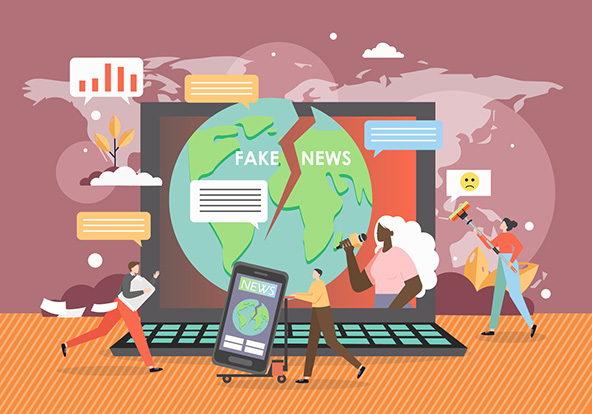
Critical thinking and media literacy are vital skills in today's information-driven world. Although they are interconnected, they are distinct concepts that enable individuals to effectively navigate and assess the vast array of available information sources.
Critical thinking refers to the ability to analyze and evaluate an issue objectively in order to make a judgment. In the context of media, it involves questioning assumptions, assessing evidence, exploring different viewpoints, and drawing well-informed conclusions.

Key aspects of critical thinking in media include:
Assessing the credibility and reliability of the sources from which information is derived.
Being aware of potential biases in media content and considering how they might influence the information presented.
Assessing the logic and reasoning behind claims made in media, including identifying fallacies or misleading arguments.
Understanding the broader context in which media messages are created and disseminated.
Encouraging individuals to reflect on their own assumptions, biases, and perspectives that might influence their interpretation of media.

Media literacy refers to the ability to access, analyze, evaluate, and create media across various formats. It involves understanding how media messages are crafted, their intended purpose, and the techniques used in their creation.
Key aspects of media literacy include:
Recognizing the organizations and structures involved in media production and distribution.
Analyzing how media messages use language, visuals, and symbols to communicate meaning and influence audiences.
Understanding the impact of media on shaping beliefs, attitudes, and behaviors in individuals and society.
Considering the ethical aspects of media production and consumption, such as issues of accuracy, fairness, and representation.
Developing the skills needed to create media content in a responsible and effective manner.

When combined, critical thinking and media literacy enable individuals to be thoughtful consumers and creators of media content. These skills are vital for navigating the complexities of modern communication, helping to distinguish between trustworthy information and misinformation, and engaging with media in a mindful and informed way. Incorporating these abilities into education and daily life is crucial for encouraging informed citizenship and fostering a positive media landscape.
Comments
Post a Comment